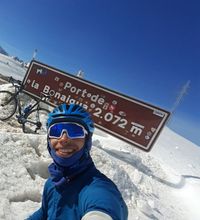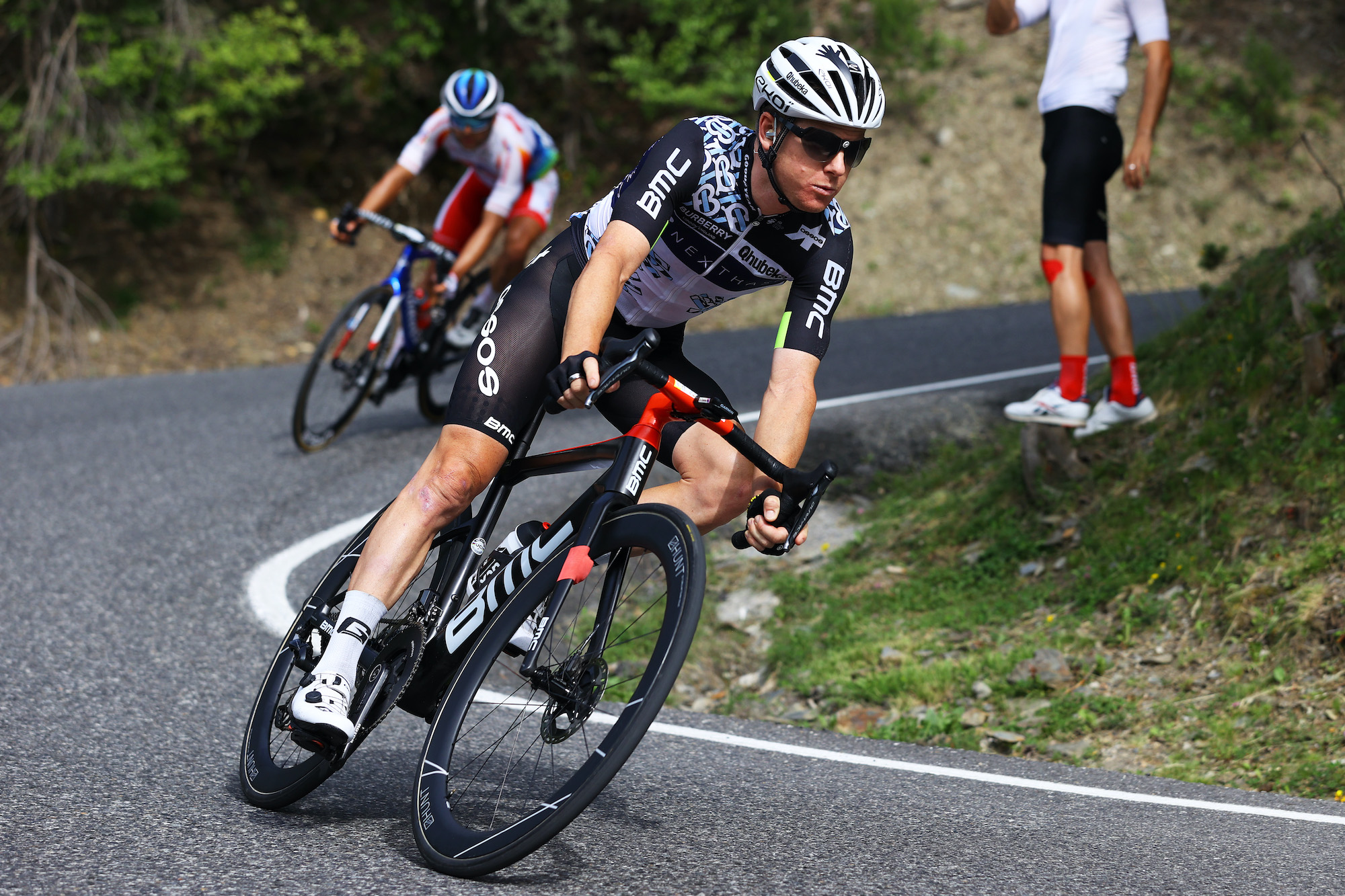'Why would I throw the towel in and not finish?': Simon Clarke has been riding the Tour de France with a fractured back
The Australian is just one of dozens of walking wounded riders in the peloton


Cycling has a new member to add to its brave, you-wouldn't-see-a-footballer-continuing-like-this list: Simon Clarke.
In what has been a very nervous edition of the Tour de France with an abnormal amount of crashes and high-profile victims, some riders have estimated that half of the peloton have been involved in crashes.
After 16 stages, 36 riders have already gone home early, most due to injuries, but Qhubeka-NextHash's Clarke has valiantly carried on despite fracturing his back in one of stage three's many incidents.
The Australian, racing his sixth Tour, thought that he had damaged his back in the crash that upended him, but it was only in recent days that he had confirmation that he had suffered a fracture in his spine's L4 vertebrae.
Clarke has been riding in pain ever since, but it was stage 15's succession of mountains that took the biggest toll on his damaged body.
"I suffered the fracture on stage three and until yesterday I've been able to hide it and fight it pretty good and kept it under wraps but yesterday it became clear I wasn't able to push on," Clarke told Cycling Weekly.
"I suspected straight away that I had done some damage to my back and had an x-ray straight after the stage but it didn't show up as x-rays aren't accurate enough.
The latest race content, interviews, features, reviews and expert buying guides, direct to your inbox!
"I pushed on but after the Ventoux stage I understood that something wasn't right and we organised for a CT scan and the fracture on the L4 showed up."
Clarke wasn't in visible pain at the start of stage 17, but he revealed that the injury has severely hampered his efforts to ride through the race.
"It's painful, yeah," he confirmed. "It's a stable fracture so I'm not doing any damage to it and I can push through it but I can't wait until Paris, to be honest.
"It's reduced everything. You haven't seen a whole lot of me in this Tour de France because I haven't been able to put the power down.
"I can do medium power without putting too much strain on my back, but when we have to push hard, for example yesterday up that first climb when the breakaway still hadn't gone away, that's when it puts me under pressure.
"Until yesterday I've been able to get through it OK but yesterday was a grim day for me."
Two consecutive summit finishes in the Pyrenees, two flat stages and a time trial are what Clarke still has to navigate before he can access proper treatment for his injury.
Asked why he is willingly subjecting himself to such pain, he said: "Because I love this. I'm not here because I get paid to do it, I'm here because I love it.
"I can still ride. It's not pretty, but why not keep going? We'll look back when I retire and I don't want to say, 'well, why would I just throw the towel in like that?' Why not go to Paris?"
A freelance sports journalist and podcaster, you'll mostly find Chris's byline attached to news scoops, profile interviews and long reads across a variety of different publications. He has been writing regularly for Cycling Weekly since 2013. In 2024 he released a seven-part podcast documentary, Ghost in the Machine, about motor doping in cycling.
Previously a ski, hiking and cycling guide in the Canadian Rockies and Spanish Pyrenees, he almost certainly holds the record for the most number of interviews conducted from snowy mountains. He lives in Valencia, Spain.
